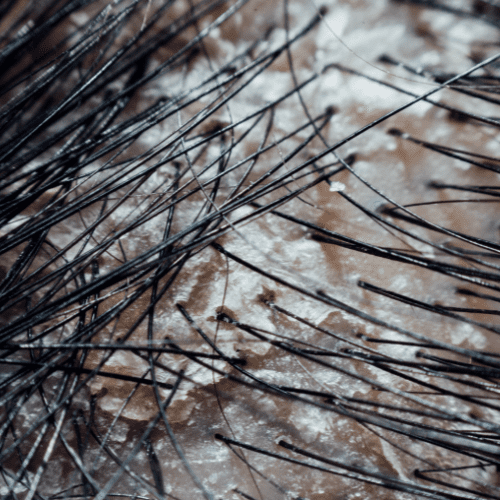Hair health is a vital aspect of personal appearance and self-esteem, making any condition that affects it a significant concern. Among the common scalp issues, scalp psoriasis and dandruff often lead to confusion due to their overlapping symptoms. While both conditions can contribute to hair fall, they stem from very different causes and mechanisms. Understanding the distinctions between scalp psoriasis and dandruff is essential for appropriate treatment and effective management of associated hair loss.
Understanding Scalp Psoriasis: Symptoms, Causes, and Its Impact on Hair Health
Scalp psoriasis is a chronic autoimmune condition that accelerates the life cycle of skin cells, resulting in the formation of thick, red, scaly patches on the scalp. These patches may vary in size and can be accompanied by symptoms such as itching, burning sensations, and a feeling of tightness. The visible lesions serve not only as a source of discomfort but may also lead to psychological distress, given the visibility of the scalp area. As the condition progresses, hair fall may occur due to both the inflammation and the physical disruption of the skin barrier, which can weaken hair follicles.
The causes of scalp psoriasis are multifactorial, encompassing genetic predispositions, environmental triggers, and lifestyle factors. A family history of psoriasis can significantly increase the likelihood of developing the condition. Environmental factors such as stress, cold weather, and skin injuries can exacerbate symptoms and trigger flare-ups. Additionally, lifestyle choices, including diet and smoking, may also influence the severity of the condition. Understanding these contributing factors is crucial for individuals seeking to manage the condition effectively and prevent potential hair loss.
In terms of hair health, the inflammation associated with scalp psoriasis can lead to temporary or, in some cases, permanent hair loss. This occurs because the rapid skin cell turnover can obstruct hair follicles, leading to weaker hair growth or complete hair loss in affected areas. Moreover, the incessant itching may lead individuals to scratch their scalp, further damaging hair follicles and exacerbating hair fall. Thus, recognizing scalp psoriasis early and implementing appropriate treatment strategies is essential for minimizing its impact on hair health.
Dandruff: Causes, Symptoms, and Its Role in Hair Loss
Dandruff is a prevalent scalp condition characterized by the shedding of dead skin cells, which results in visible flakes on the scalp and hair. It commonly manifests as an itchy, irritated scalp, often leading individuals to feel self-conscious about their appearance. Dandruff is typically less severe than scalp psoriasis, but it can still significantly affect the quality of life and contribute to hair loss over time. The primary cause of dandruff is often linked to dry skin or the overgrowth of Malassezia yeast, a fungus that thrives on the scalp.
The symptoms of dandruff include an itchy scalp and the presence of white or yellow flakes, which may be more pronounced in individuals with darker hair. Factors that exacerbate dandruff can include stress, hormonal changes, and dietary deficiencies—especially a lack of omega-3 fatty acids and zinc. Environmental conditions, such as dry air in winter months, can also worsen the symptoms. Understanding these symptoms and triggers is vital for distinguishing dandruff from more serious conditions like scalp psoriasis.
While dandruff itself is not directly responsible for significant hair loss, the associated scratching and inflammation can lead to temporary hair shedding. The act of scratching can damage hair follicles and disrupt the hair growth cycle, resulting in thinner hair or patches of hair loss. Fortunately, dandruff is often manageable with proper treatment, which may include medicated shampoos, lifestyle modifications, and dietary changes. By addressing dandruff effectively, individuals can mitigate its impact on hair health and reduce the likelihood of hair fall.
In conclusion, while both scalp psoriasis and dandruff can cause discomfort and contribute to hair fall, they are distinct conditions with unique symptoms, causes, and management strategies. Understanding the differences between these scalp issues is crucial for effective treatment and minimizing their impact on hair health. By recognizing the underlying factors and symptoms associated with each condition, individuals can take informed steps to address their specific needs and maintain healthy hair. Effective management can lead to improved scalp health and overall well-being, reducing the psychological burden that these conditions often impose.




